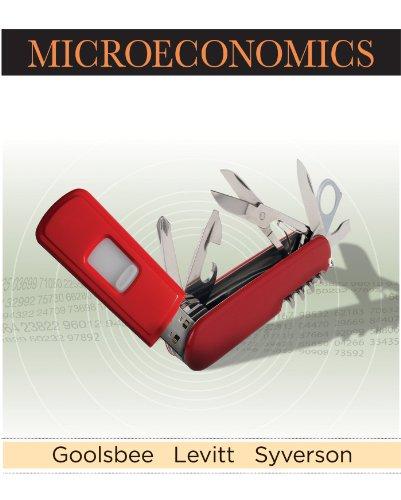12. Consider the graph in the next column, which demonstrates the costs and benefits of theft proofing
Question:
12. Consider the graph in the next column, which demonstrates the costs and benefits of theft proofing one’s home. The marginal costs increase as more precaution is taken: It’s cheap to install good locks, but more difficult to install invisible laser intruder-detection systems.
The marginal benefit declines as more precaution is taken: If I am a burglar, adding a guard dog isn’t going to provide much deterrence if you already have an electric fence and 30 locks on each door and window.

a. Determine the optimal amount of precaution the homeowner would take if theft insurance were unavailable.
b. Suppose that the homeowner can obtain an insurance policy that covers half of any losses he might suffer. Assuming that the marginal benefit curve represents dollar losses to the homeowner, shift the marginal benefit curve an appropriate distance and determine what happens to the homeowner’s optimal amount of care.
c. Suppose that the insurance company decides to institute a deductible: The homeowner pays the first $1,000 of losses, and after that the insurance company splits the losses with the homeowner 50-50. Shift the marginal benefit curve by an appropriate amount (be sure to indicate the magnitude of the shift in an appropriate fashion). What effect does the deductible have on the precautions taken by the homeowner?
Step by Step Answer:

Microeconomics
ISBN: 9780716759751
1st Edition
Authors: Austan Goolsbee, Steven Levitt, Chad Syverson






